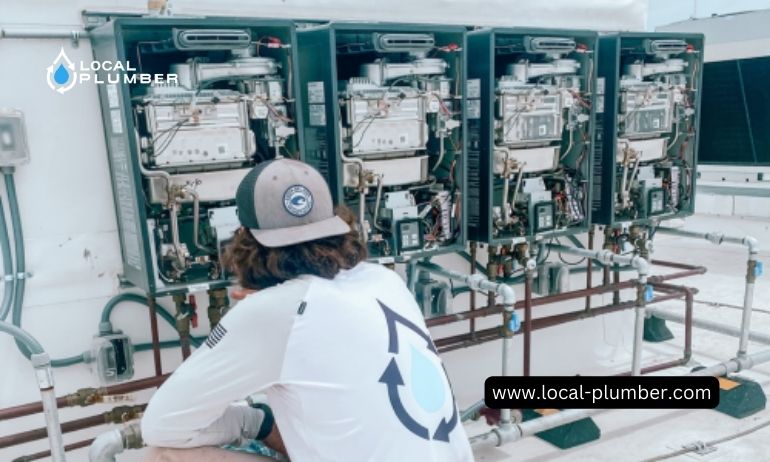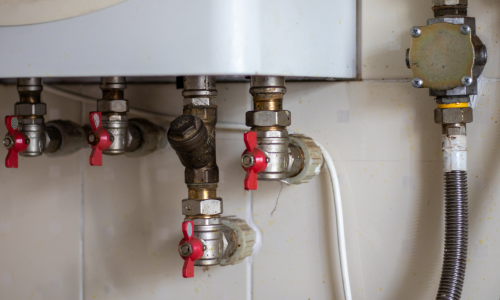
How much does it cost to install a gas line in Florida?
Gas line installation is a vital service in Florida, serving homes, businesses, and industries. Understanding the costs associated with this process is essential for homeowners and businesses alike. In this comprehensive guide, we will break down the expenses, factors that influence them, and key considerations for your gas line installation project in the Sunshine State.1. Basics of Gas Line Installation:
Before we delve into the costs, let’s establish a fundamental understanding of gas line installation:-
- Natural Gas vs. Propane: Florida primarily uses natural gas for residential and commercial purposes. However, in some areas, propane gas is used in lieu of natural gas. Installation costs may vary depending on the type of gas being used.
-
- Permitting and Regulations: Gas line installation requires adherence to local building codes and permits. Depending on your location, these requirements can influence costs.
- Professional Installation: Gas line installation is not a DIY project. It must be conducted by licensed professionals to ensure safety and compliance with regulations.
2. Factors Influencing Gas Line Installation Costs:
Several variables affect the overall cost of gas line installation in Florida:-
- Length of Piping: The most significant cost factor is the length of piping required to reach the gas source and connect to appliances. Longer distances necessitate more materials and labor, increasing costs.
-
- Type of Gas: Natural gas and propane have different installation requirements. Propane installations often require larger pipes, which can impact costs.
-
- Location and Accessibility: Accessibility to the installation site and the terrain’s complexity can affect labor costs. Urban installations tend to be more accessible than rural ones.
-
- Appliances and Usage: The number and type of appliances (e.g., stoves, water heaters, fireplaces) determine the complexity of the installation and the number of connections needed.
-
- Material Costs: The materials used for gas lines, like copper, steel, or flexible piping, have different price points. Additionally, costs can vary depending on market conditions.
-
- Permitting Fees: The cost of permits varies from city to city in Florida. Be sure to include this expense in your budget. Safety Measures: Florida’s gas line regulations may require safety features such as shut-off valves and pressure regulators. These components can add to the installation cost.
- Labor Costs: Labor costs are influenced by the complexity of the project, your location, and the experience of the technicians. Hiring a licensed, experienced plumber is essential for safety and compliance.
3. Estimating Gas Line Installation Costs:
It’s challenging to provide a fixed cost for gas line installation, as each project is unique. However, we can offer a rough estimate for residential gas line installation, excluding additional factors such as extensive permitting requirements, which can add to the costs.-
- Short Distance: If your home is close to the gas source, with minimal piping required, you might expect costs to range from $500 to $1,000.
-
- Moderate Distance: For homes that require a more extended gas line, costs could range from $1,000 to $3,000, depending on factors like accessibility.
-
- Long Distance: Homes far from the gas source can incur higher costs, potentially ranging from $3,000 to $6,000 or more, accounting for additional materials and labor.
4. Hiring a Professional Plumber:
Gas line installation is not a DIY project. It requires specialized knowledge and experience to ensure safety and compliance. Here’s what to look for when hiring a professional plumber in Florida:-
- Licensing: Ensure the plumber holds a valid license and is authorized to perform gas line installations.
-
- Experience: Choose a plumber with experience in gas line installations, as this ensures a deep understanding of the nuances and regulations.
-
- References: Request references and read online reviews to gauge the plumber’s reputation.
-
- Detailed Quote: Obtain a detailed written quote that includes all potential costs, such as materials, labor, permits, and additional safety features.
-
- Insurance: Verify that the plumber has adequate insurance coverage, including liability insurance, to protect you and your property.
-
- Safety Compliance: Confirm that the plumber follows safety protocols and adheres to local building codes.
5. Additional Considerations:
-
- Maintenance: Regular maintenance of your gas lines is crucial for safety. Inspections and leak checks should be part of your annual routine.
-
- Emergency Preparedness: Know how to shut off the gas supply in case of a leak or emergency. This information is vital for your safety.
-
- Safety Alarms: Invest in gas leak detectors and carbon monoxide detectors to enhance safety within your home.
-
- Gas Appliances: If you’re upgrading or installing gas appliances, consider this an opportune time to have gas lines installed or adjusted as needed.
-
- Budgeting: Factor in the cost of installation when planning your overall budget for home or commercial projects that require gas line installation.
Conclusion: Gas line installation costs in Florida can vary significantly based on several factors, including distance, type of gas, materials, and permitting requirements. Prioritizing safety and compliance with local regulations is paramount when considering gas line installation. Always hire a licensed professional with experience in gas line installation to ensure the job is done correctly and safely.
At local Plumber, we understand the importance of safe and efficient gas line installations. Our experienced team is dedicated to providing top-notch service, ensuring your project meets all safety and compliance standards. If you have any questions or need assistance with gas line installation in Florida, do not hesitate to reach out to us. Your safety is our primary concern.
Also Read: Why You Should Consider a Whole Home Water Filtration System






Leave a comment